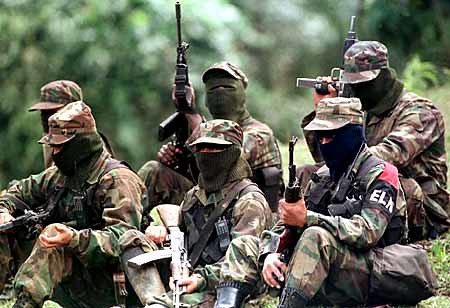Outrage in Colombia over alleged soldier abuse of Indigenous
Accusations that a group of soldiers sexually assaulted two young Indigenous girls in rural Colombia have sparked protests outside army bases and rekindled fears about the military's human rights record, especially in parts of the country still recovering from decades of armed conflict.

- Country:
- Colombia
Accusations that a group of soldiers sexually assaulted two young Indigenous girls in rural Colombia have sparked protests outside army bases and rekindled fears about the military's human rights record, especially in parts of the country still recovering from decades of armed conflict. “The armed forces are supposed to be protecting us, and instead they have become a threat,” said Kuiru Castro, whose ancestors from the Huitoto tribe suffered similar violence at the hands of rubber tappers in the 1920s.
In one case which came to light last week, authorities say seven soldiers from an army garrison in western Colombia acknowledged abducting an 11-year-old girl from the Embera tribe and sexually assaulting her. The soldiers were arrested and are being held at a military base while the case is investigated, though Indigenous groups are demanding they be sent to jail. On Monday, the Peace and Reconciliation Foundation, a Colombian think tank, revealed details of an alleged second rape case that occurred last September in the southern Guaviare province.
According to the foundation, a group of soldiers from a local army base abducted a 15-year-old girl from the Nukak Maku tribe and held her inside the base for five days, where she was repeatedly sexually assaulted. A Colombian army general confirmed on Tuesday that six soldiers undertaking compulsory military service were involved in the incident as well as two officers and that an investigation is underway as well as a probe led by local prosecutors. No arrests have been made so far.
Colombian President Ivan Duque spoke about the first case last week and asked for life imprisonment for the soldiers who authorities say confessed to raping the 11-year-old Embera girl. “I will always be a defender of our armed forces,” Duque said in a television address. “But we cannot allow a few rotten apples to smear our reputation with that type of atrocity.” Gimena Sanchez, Andes director of the Washington Office on Latin America think tank, said exemplary punishment will not be enough to stop these crimes.
“There needs to be education and consciousness raising within the armed forces on how to treat and how to engage with ethnic minorities. Not just with Indigenous but also Afro-Colombians,” she said. Colombia's army has long been at loggerheads with Indigenous communities who have often attempted to keep armed groups like the military, leftist rebels and drug traffickers away from their territories. The military has sometimes accused Indigenous leaders of trying to interfere with efforts to crack down on drug traffickers and insurgent groups.
“This is a new low point in the relationship,” Sanchez said. Human Rights Watch said the assault cases are not isolated incidents, and that it has credible information of cases involving at least nine more victims from Indigenous tribes.
Some of these cases have occurred among Indigenous groups in the Guaviare that only emerged from voluntary isolation in recent decades. These groups are semi-nomadic and many of their members don't speak Spanish which makes documenting cases more difficult, human rights workers in the area told the Associated Press. Advocates in the Guaviare have made authorities aware of at least two other incidents in which soldiers are suspected of sexually abusing young girls.
In one case, in 2018, two drunken soldiers allegedly sexually abused two young girls in a school. Last year, advocates learned of another case involving a soldier accused of offering a child under the age of 13 cash in exchange for sex. In both cases, soldiers were abruptly transferred to other areas but no charges filed. Both incidents were verified by independent human rights investigators.
Colombia's military was applauded around the world in recent years for signing a peace deal with the nation's largest rebel group to end five decades of war that cost the lives of more than 260,000 people. But smaller guerrilla groups continue to operate in the country and the military has been recently dogged by scandals. Human rights advocates like Sanchez argue that the U.S. Congress must do more to influence the behavior of Colombia's army. Colombia is the largest recipient of U.S. military aid in the hemisphere and is expected to receive more than USD 180 million this year, to fight drug trafficking groups.
(This story has not been edited by Devdiscourse staff and is auto-generated from a syndicated feed.)










